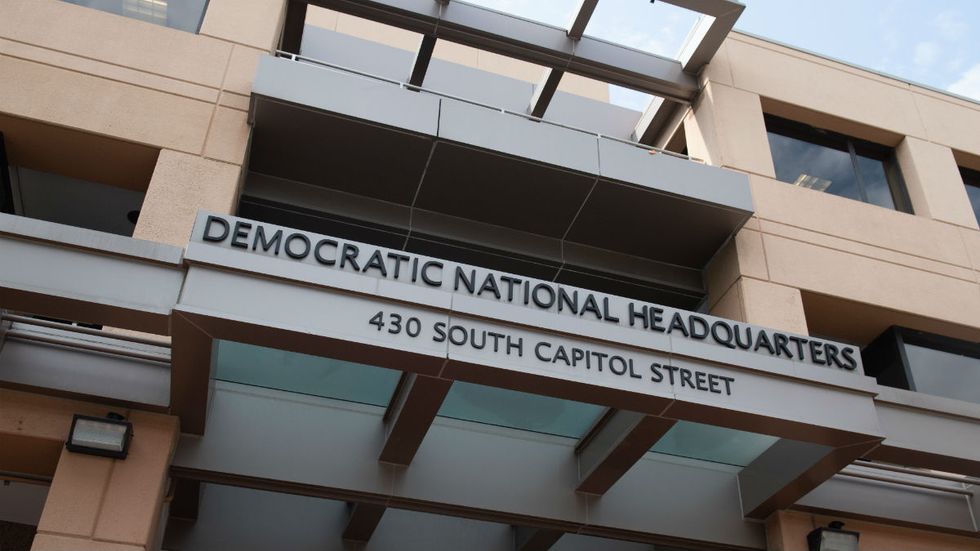
© 2025 Blaze Media LLC. All rights reserved.
Mueller and Democrat operatives continue to wildly exaggerate Russian election interference
May 30, 2019
In order to sway the masses to believe that President Trump colluded with Russia to win the 2016 presidential election, the Clinton campaign and the Obama administration first had to convince the American people that Russia deployed a massive cyber intrusion campaign to swing the election in Trump’s favor.
This core contention, regularly echoed by Democrats (and many Republicans, too), that Russia deployed advanced cyber tools to interfere in our electoral politics, was regurgitated Wednesday by special counsel Robert Mueller in his press conference at the Department of Justice.
“As alleged by the grand jury in an indictment, Russian intelligence officers who were part of the Russian military launched a concerted attack on our political system,” Mueller said to begin his remarks.
He added:
The indictment alleges that they used sophisticated cyber techniques to hack into computers and networks used by the Clinton campaign. They stole private information, and then released that information through fake online identities and through the organization WikiLeaks. The releases were designed and timed to interfere with our election and to damage a presidential candidate.And at the same time, as the grand jury alleged in a separate indictment, a private Russian entity engaged in a social media operation where Russian citizens posed as Americans in order to interfere in the election.
"I will close by reiterating the central allegation of our indictments—that there were multiple, systematic efforts to interfere in our election," the Special Counsel said in concluding his remarks.
Mueller’s statement of a “sophisticated” cyber intrusion is not backed by the evidence that is publicly available to date. We do know that Democratic National Committee (DNC) and Clinton campaign officials were targeted by a primitive spear-phishing campaign. Both John Podesta (Hillary Clinton’s campaign chairman) and DNC officials were not actually “hacked” according to the proper definition of the term. They fell for a widespread (and again, a very primitive) email phishing scam — which also targeted Republican political operatives — and delivered their passwords to the intruders on a silver platter. These “Nigerian prince”-style attacks have targeted hundreds of millions of email accounts. It’s safe to say that Vladimir Putin is not personally directing every one of them. Anyway, once the intruders obtained the passwords of these officials, they could easily scoop up a database of all of the target emails and perhaps access to other valuable items such as bank account numbers. This is what happened in the case of Podesta. He entered his password into a fake email form sent by the phishing scammers, who were posing as a Google security email team. The phishing scammers then had free access to observe all of his communications, which were eventually published by WikiLeaks.
As for the DNC and DCCC “hack,” the FBI was denied access to the DNC’s servers and had to rely on data from a third-party contractor to make its determination. The Clinton-tied third-party contractor Crowdstrike did not divulge how exactly the DNC servers were accessed, but the Mueller report said that these cyber intruders may have used credentials stolen from the Clinton campaign officials to access the DNC and DCCC servers.
By all indications, this alleged Russian campaign succeeded because the Clinton campaign and DNC failed to adopt even the most basic security protocols to stop intrusions.
It is a geopolitical reality that America’s adversaries will always try to exploit its weakness to their advantage. It is up to our officials to make sure the American system is shielded from more inevitable intrusion attempts. Ultimately, the Clinton campaign and DNC were grossly negligent of their security responsibilities. They only have themselves to blame for being vulnerable to the intrusions.
But that was not the story that the legacy media would tell. For the past three years, we have been told, through a narrative spread by Democrat typists in the legacy media, along with America’s highest-ranking politicians and intelligence officials, that the Russians attacked the very fabric of our republic.
Prior to the “Russia hacking” narrative’s explosion in the media, President Barack Obama himself dismissed the idea that the intrusion was some kind of high-level, massive cyber operation. He said that the “manipulations, which as I’ve said publicly before, were not particularly sophisticated,” adding that “this was not some elaborate, complicated espionage scheme.”
The alleged Russian hacking campaign, just like the Russian social media disinformation operation, was a low-level, low-resource (Russia spent approximately $100,000 on Facebook ads) campaign meant to sow general discord in the United States. But if you listen to the average Democrat politician or read the latest anonymously sourced dispatch from the New York Times or the Washington Post, the narrative continues that Russia dropped operations akin to a cyber nuclear bomb on America.
Now that the “Trump-Russia” collusion allegations have been proven false, it’s time to take on the core “Russian interference” narrative that spawned the Mueller probe in the first place.
#mc_embed_signup{background:#fff; clear:left; font:14px; }
/* Add your own MailChimp form style overrides in your site stylesheet or in this style block.
We recommend moving this block and the preceding CSS link to the HEAD of your HTML file. */
Want to leave a tip?
We answer to you. Help keep our content free of advertisers and big tech censorship by leaving a tip today.
Want to join the conversation?
Already a subscriber?
more stories
Sign up for the Blaze newsletter
By signing up, you agree to our Privacy Policy and Terms of Use, and agree to receive content that may sometimes include advertisements. You may opt out at any time.
© 2025 Blaze Media LLC. All rights reserved.
Get the stories that matter most delivered directly to your inbox.
By signing up, you agree to our Privacy Policy and Terms of Use, and agree to receive content that may sometimes include advertisements. You may opt out at any time.


